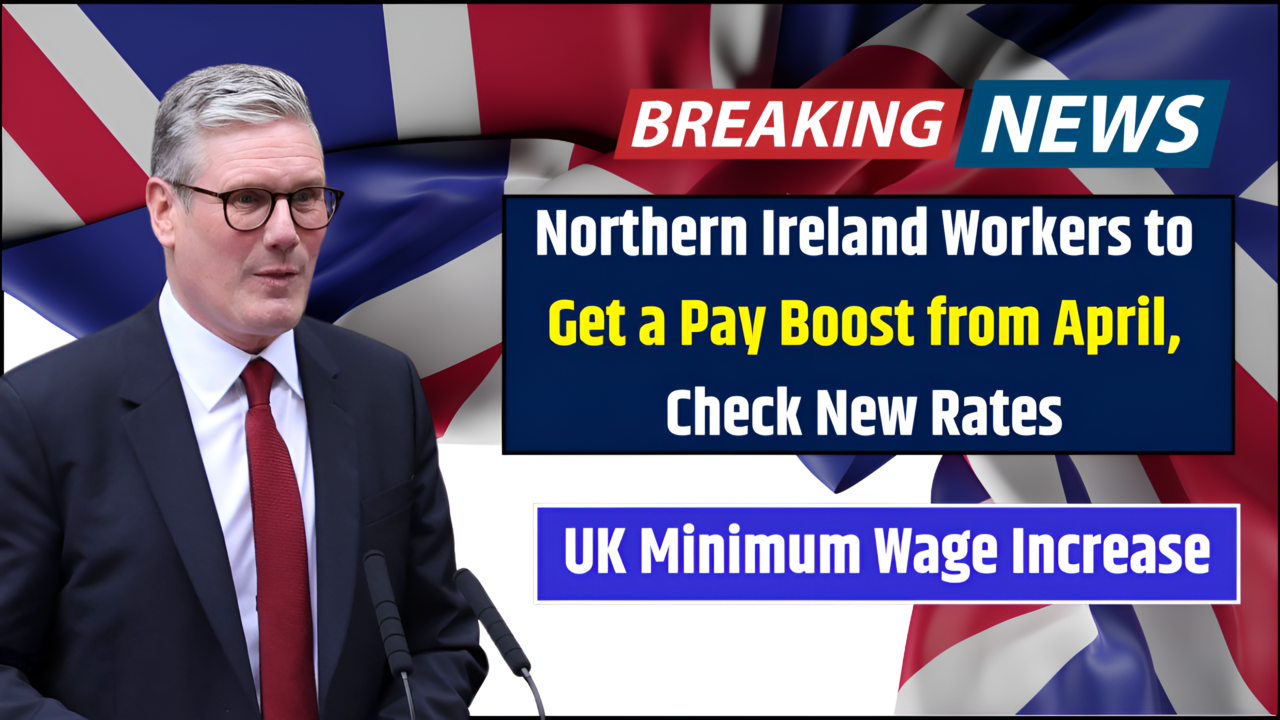The UK Government has announced a significant increase in the National Minimum Wage and National Living Wage rates for 2025, bringing welcome relief to workers across Northern Ireland. Effective from April 1, 2025, this pay boost is set to benefit up to 170,000 workers, improving financial stability and living standards for many households. In this article, we’ll explore the new wage rates, their impact on workers and businesses, and what this change means for the broader economy.
Understanding the Minimum Wage Increase
The National Minimum Wage and National Living Wage are statutory pay rates designed to ensure fair compensation for workers. These rates are reviewed annually by the Low Pay Commission, which considers factors such as inflation, cost of living, and economic growth. For 2025, the UK Government has implemented one of the most substantial increases in recent years, reflecting its commitment to tackling low pay and supporting workers.
New Wage Rates for 2025
From April 1, 2025, the following rates will apply:
- National Living Wage (21 and over): Increased by 6.7%, from £11.44 to £12.21 per hour.
- National Minimum Wage (18-20 years old): Increased by 16.2%, from £8.60 to £10.00 per hour.
- National Minimum Wage (16-17 years old): Increased by 18%, from £6.40 to £7.55 per hour.
- Apprentice Rate: Increased by 18%, from £6.40 to £7.55 per hour.
- Accommodation Offset: Increased by 6.7%, from £9.99 to £10.66 per day.
These changes represent a significant step forward in addressing wage disparities and ensuring workers receive fair compensation for their efforts.
Impact on Workers in Northern Ireland
Northern Ireland has one of the highest proportions of low-paid workers in the UK, making this wage increase particularly impactful. For full-time workers on the National Living Wage, the pay boost translates to an additional £1,400 per year, providing much-needed financial relief.
Benefits for Workers
- Improved Living Standards: Higher wages enable workers to afford essential goods and services, reducing financial stress.
- Economic Security: Increased earnings contribute to greater financial stability for families, allowing them to plan for the future.
- Positive Spill-Over Effects: The wage increase may lead to higher pay for workers earning slightly above the minimum wage, as businesses adjust their pay scales.
Challenges for Businesses
While the wage increase is a positive development for workers, it presents challenges for businesses, particularly small and medium-sized enterprises (SMEs). Employers must navigate higher wage bills, which could impact profitability and operational costs.
Key Concerns for Employers
- Increased Costs: Businesses face higher payroll expenses, which may require adjustments to budgets and staffing levels.
- Potential Price Increases: To offset wage costs, some businesses may raise prices, affecting consumers.
- Recruitment Challenges: Smaller businesses may struggle to attract and retain staff due to competitive wage rates offered by larger companies.
Despite these challenges, the wage increase is expected to drive economic growth by boosting consumer spending and supporting local businesses.
Government Support for Businesses
To help businesses adapt to the new wage rates, the UK Government has introduced measures aimed at reducing the financial burden. These include:
- Tax Incentives: Employers may benefit from tax reliefs and credits to offset wage costs.
- Training Programs: Support for workforce development to enhance productivity and efficiency.
- Access to Funding: Grants and loans for SMEs to invest in growth and innovation.
These initiatives are designed to ensure businesses can thrive while supporting fair pay for workers.
Broader Economic Implications
The wage increase is part of the UK Government’s Plan for Change, which aims to create a fairer and more inclusive economy. By raising the floor for workers’ pay, the government seeks to address income inequality and stimulate economic growth.
Positive Outcomes
- Boost to Consumer Spending: Higher wages increase disposable income, driving demand for goods and services.
- Economic Growth: Improved living standards contribute to a healthier economy, with benefits for businesses and workers alike.
- Social Equity: The wage increase supports the government’s goal of reducing poverty and promoting social mobility.
Conclusion
The UK Minimum Wage Increase for 2025 marks a significant milestone in the fight against low pay, offering tangible benefits to workers in Northern Ireland and across the UK. While businesses may face challenges in adapting to higher wage costs, the long-term benefits of improved living standards and economic growth outweigh the short-term difficulties.
For workers, this pay boost represents an opportunity to achieve greater financial stability and security. For businesses, it’s a chance to invest in their workforce and contribute to a thriving economy. As Northern Ireland workers prepare to receive their pay rise from April, the positive impact of this change will be felt across communities and industries.
F&Q
When will the new minimum wage rates take effect?
- The new wage rates will come into effect on April 1, 2025.
What is the new National Living Wage for 2025?
- The National Living Wage (for workers aged 21 and over) will increase to £12.21 per hour.
How much will 18-20-year-olds earn under the new rates?
- Workers aged 18-20 will see their wage rise to £10.00 per hour.
What is the new pay rate for 16-17-year-olds and apprentices?
- Both 16-17-year-olds and apprentices will now earn £7.55 per hour.
How will this wage increase benefit workers?
- The pay rise will improve living standards, provide greater financial security, and boost economic growth.
